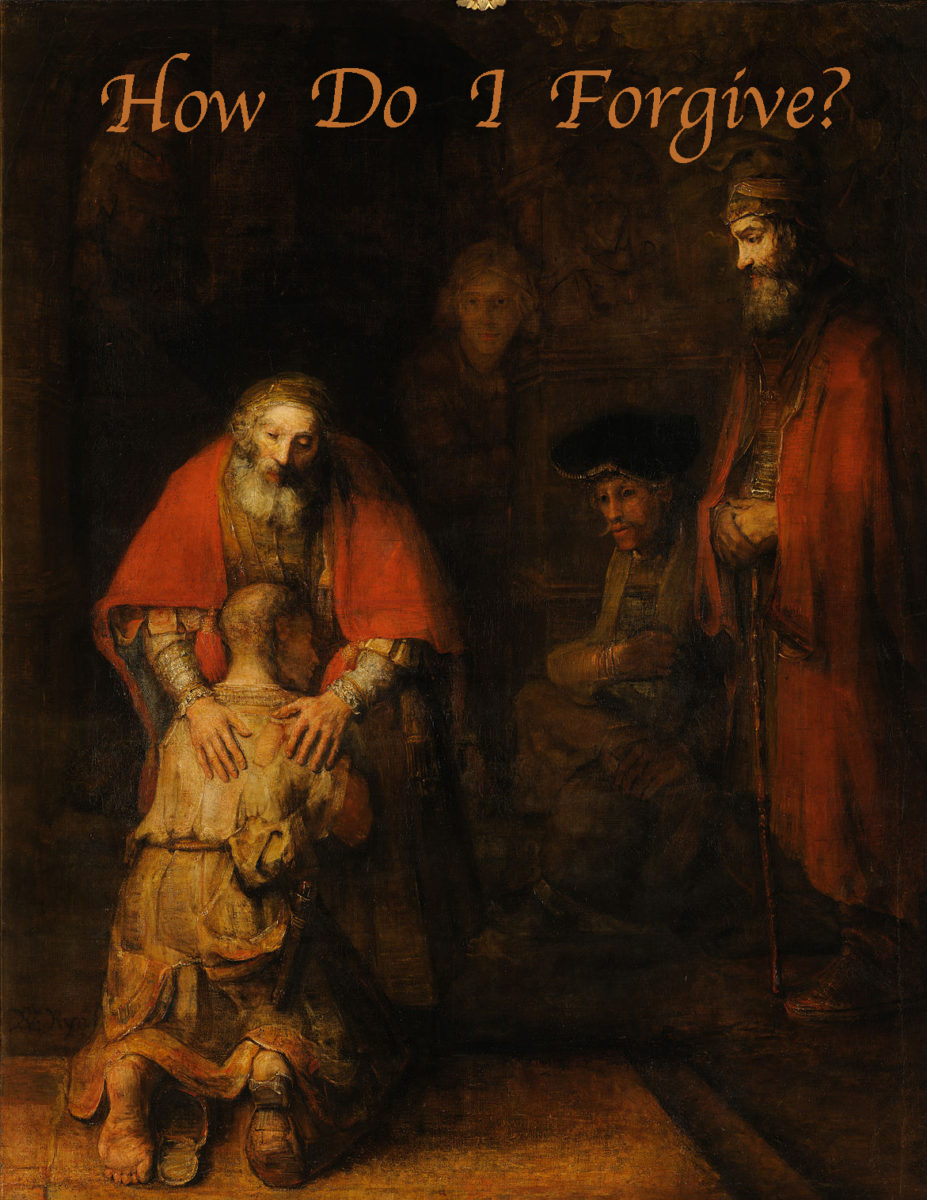Unforgiven sin is a death sentence for a relationship. We were created to be in relationships that grow in glory, moving through changes–death–into new and deeper joys–resurrection. Living with unforgiveness is death that spirals downwards into greater death. To enjoy the abundant life that Jesus promised, we must image him in living lives of forgiveness with one another.
But how do we forgive one another? What does forgiveness look like? In this article and the next, I will address these questions.
When you have sinned against someone or someone has sinned against you, the first step that needs to be taken is to evaluate the need for forgiveness. Forgiveness is not a simple paint-by-numbers or one-size-fits-all craft. There are various factors that need to be considered that can fall under two main considerations.
1. Evaluation of the need for forgiveness must take into account the goal of forgiveness: peace.
Forgiveness is a means to the end of peace. We desire that relationships be free from animosity and that they are healthy, with each person fulfilling his responsibilities. This peace is modeled in the peace of Father, Son, and Spirit. As God’s image, we are to reflect this peace. God himself pursued peace with us after sin entered the world, providing forgiveness through the grace of blood offerings. Just as those offerings varied from person to person and from situation to situation, so our approaches to creating peace must account for different people and different situations.
One question we must ask ourselves is, What does peace look like in this situation? Depending on the nature of the sin involved, the relationship of peace may look very different than it did before the sin was committed. Adam and Eve were at peace with God after they sinned, but they were banned from the Garden. An accountant who steals from you may be forgiven so that you can be friends, but you may never hire him back to keep your books. A man and woman may be at peace with one another after a divorce but may never be remarried. Sin changes things. God is a God of resurrection, but the transformation after the death of sin may re-shape the relationship. Peace takes on different forms depending on the nature of the sin that created the breach. Don’t try to make every situation fit into a pre-conceived pattern of the way things ought to be.
Another question: Is peace possible in this situation? Does the offender or offended desire reconciliation? Although you have no right to hold bitterness for sins committed against you and you should pursue reconciliation, your offer of forgiveness or your asking for forgiveness doesn’t make peace inevitable. Some people won’t be reconciled.
Then you must ask, What is the best way to achieve the goal of peace in this situation? Even if I am the one sinned against, I may still need to ask, “Did I do anything to encourage this response from the other person?” “Do I need to ask forgiveness as well as grant it?” It may be that you did nothing. (And if you didn’t, you shouldn’t confess sin that you didn’t commit and relieve the other person of his responsibility.) But if you contributed to the situation, it may be that pursuing peace means seeing where you need to change.
Also, people respond to different promptings, so the person himself needs to be considered. Does he need to be approached with kid gloves or with an M1 A1 Abrams tank? Depends on his personality.
2. Evaluating the need for forgiveness must take into account knowledge of the person and the situation.
There are different responses to different situations. Though all sin is serious, not all sin is the same. Some sins deserve greater punishment and some lesser according to the Scriptures. A child disobeying and swiping a cookie before supper doesn’t deserve a hand being chopped off. Someone who commits murder doesn’t need a soft reprimand. Jesus, reflecting the laws concerning sins of inadvertency and sins of a high hand in Numbers 15, tells his disciples that there are servants who will receive many stripes and some who will receive few (Lk 12.35-48). As sin is different, it calls for proportionate responses. Is this a one-time event, or is this a persistent problem? Is this an angry word or marital infidelity? You have to grow in wisdom to discern good and evil (Heb 5.14ff.), which includes what shape forgiveness takes depending on the nature of the sin.
There are also different responses depending on different relationships. God held Israel more accountable than he did the nations because he was closer to Israel (cf. Amos 3.2; also Ac 17.30). So it is with us. What is the nature of the relationship? Is this your spouse, a friend, or some inconsiderate driver on the road? A person’s level of knowledge of you as well as what he ought and ought not to do have to come into consideration when evaluating the need for forgiveness.
When all of this is written out, it seems complicated. If I wrote everything out in detail about what it takes for you to drive your car from your house to work every day, that would seem complicated too. Because you have been driving for a while, the complex processes are worked through quickly and become almost instinctual. The same is true for communication. Communication is complex involving people’s personalities, culture, language, family, the day they are having, and many other factors. However, we still talk to one another.
So it is with evaluating the need for forgiveness. Yes, it is complex, but it is a craft, a skill, that you work through more quickly as you get the fundamentals down and practice them. I break all of this down so that we can focus on particulars, correct weaknesses, and hone strengths.
May your skills in the grace of forgiveness increase.














[…] How Do I Forgive? (Part 1) […]